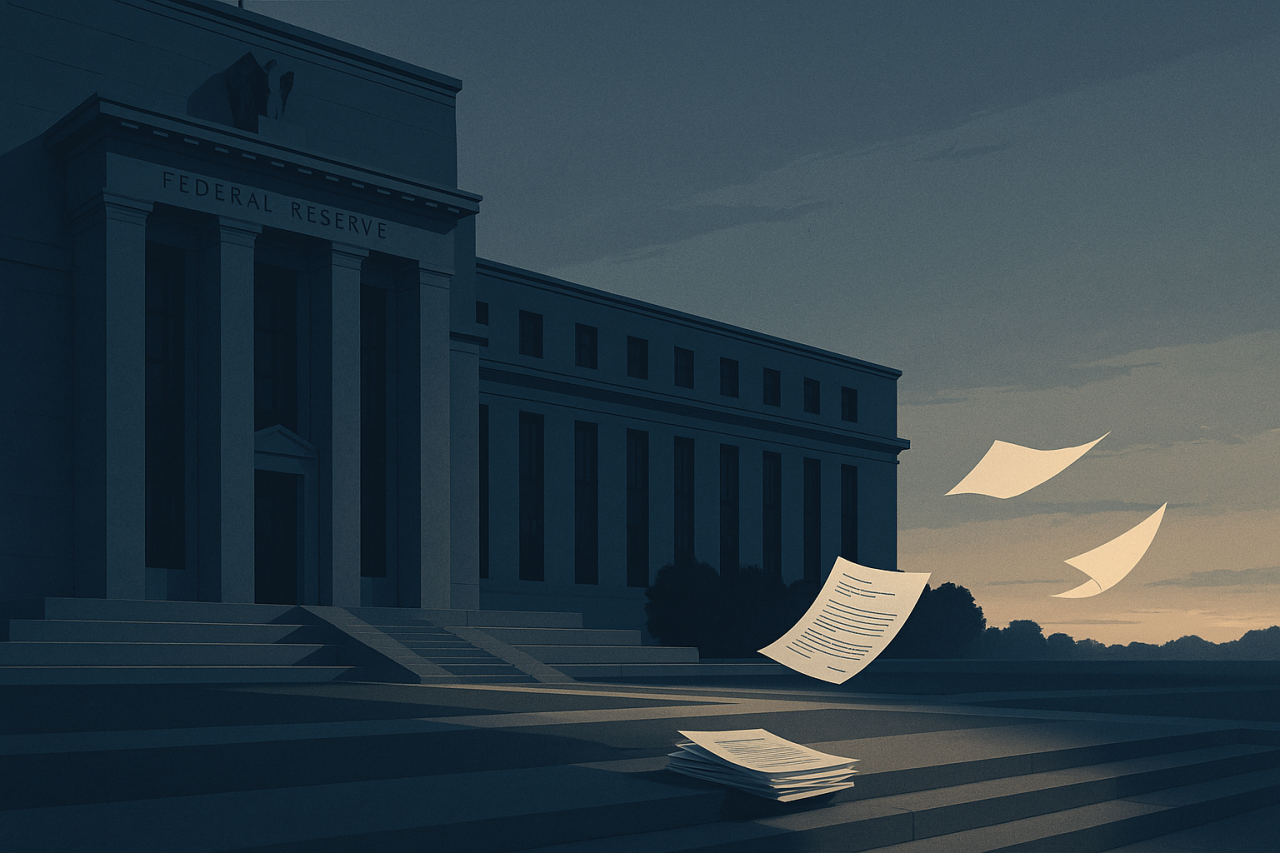Federal Reserve Governor Adriana Kugler’s resignation in August seemed routine at first, a return to academia after nearly two years of public service.
But documents released in mid-November revealed something far messier.
Her abrupt departure wasn’t about teaching commitments at Georgetown University. It was about forbidden stock trades, repeated ethics violations, and a waiver request that Fed Chair Jerome Powell flatly denied.
The 100-word explanation she offered, as she returned to her professorial role, masked a scandal that would expose cracks in the central bank’s ethics framework and hand President Donald Trump an unexpected political gift.
When a spouse’s clicks become a Governor’s crisis
The problem started quietly, buried in routine compliance checks. Kugler’s husband had been trading individual stocks: Apple, Southwest Airlines, Caterpillar, Cava Group, without her knowledge, she later claimed.
But Federal Reserve rules don’t care about intent. The 2022 overhaul, implemented after embarrassing revelations about pandemic-era trading by senior officials, made the standards crystal clear.
No individual stocks. No bonds. No cryptocurrencies. And absolutely no transactions during blackout periods, the roughly two-week windows before policy meetings when rate decisions could move markets.
Kugler’s disclosures showed she’d broken nearly every rule. She bought Cava shares on March 13, 2024, just days before a Federal Open Market Committee meeting.
Southwest Airlines stock was sold on April 29, the evening before another gathering. An Apple purchase worth between $100,000 and $250,000 happened in April, also during a restricted period.
Fed ethics officials flagged the violations, referred the matter to the inspector general, and declined to certify her financial disclosures, a bureaucratic red flag that effectively screamed trouble.
The waiver that never came
By July 2025, Kugler knew she had a problem. Ahead of the Fed’s late-month policy meeting, she approached Powell with a request: grant her a waiver to trade during the blackout period so she could unload impermissible holdings.
Powell said no. The decision wasn’t surprising; granting such a waiver would have undermined the very rules designed to protect the Fed’s credibility.
But it left Kugler in an impossible position. She skipped the July 29-30 meeting, citing a “personal matter,” and announced her resignation days later, effective August 8.
Her departure opened a Board seat six months early, creating an unexpected vacancy that Trump quickly filled with Stephen Miran, his Council of Economic Advisers chair and an advocate for aggressive rate cuts.
Miran’s confirmation in September raised eyebrows as he remained on unpaid leave from the White House while serving on the supposedly independent Fed board, but the timing was no accident.
Kugler’s ethics mess had handed Trump exactly what he wanted: another voice pushing his economic agenda from inside the central bank.
Accountability in the aftermath
The Office of Government Ethics report, released on a Saturday in November, laid bare the full scope of Kugler’s violations.
It confirmed what Fed insiders already knew: this wasn’t her first rodeo. She’d been flagged for similar issues in 2024, when her husband executed trades without her knowledge.
That time, she divested the shares and was deemed compliant. This time, the pattern repeated, but the consequences were steeper.
The inspector general’s investigation remains ongoing, and lawmakers from both parties are demanding answers.
Senator Elizabeth Warren called for bipartisan legislation to tighten Fed transparency.
Senate Banking Committee Chair Tim Scott said the scandal proved the central bank “doesn’t have the guardrails or culture of accountability the American people expect”.
For Kugler, who once helped shape labor policy at the World Bank and served as chief economist at the Department of Labor, the legacy is tarnished.
For the Fed, it’s another reminder that even the toughest rules mean little without rigorous enforcement and a willingness to act when things go wrong.
The post The quiet unraveling: how disclosure forms and stock trades led to a Fed resignation appeared first on Invezz

